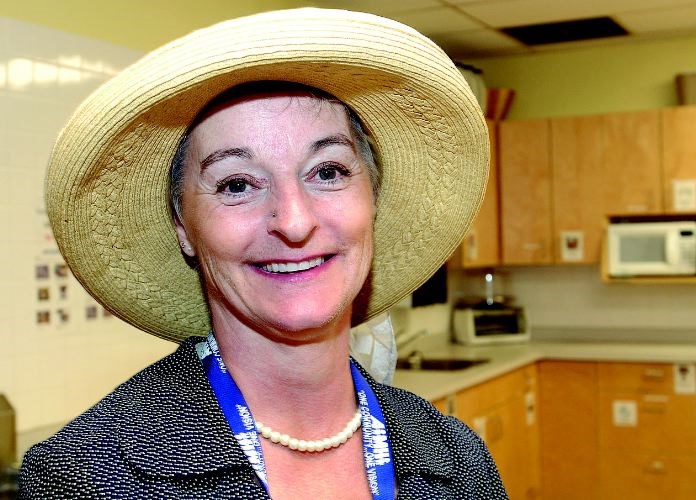Theresa Robinson grew up in a time when kids with special needs were segregated from the rest of the student population.
The "special kids" didn't mingle with the "normal kids," not even at recess, and Robinson left her Vancouver Island school in the early 1970s lacking confidence, ill-prepared to face the working world as an adult.
How times have changed.
Assisted by specialized teachers and support services, special needs students are now fully integrated into neighborhood schools. In Prince George, the AiMHi Prince George Association for Community Living provides advocacy and support services for people with special needs, from infant to adult, as well as their families, to help them face the challenges of their disabilities and become contributing members of society. Based at the former Lakewood elementary school on Kerry Street, AiMHi now serves about 1,000 people annually in the community.
"If we didn't have an organization like AiMHi, people would be on the streets," said the 55-year-old Robinson. "When I go back home on the Island to visit my family I see people I went to school with 40 years ago who just couldn't cope with life and they've become addicts and it's really sad. In the 60s, they couldn't tolerate it -- you're mental, you're retarded -- and you got put into a mental home. I'm so glad to see that's been taken away."
Robinson is one of the more enthusiastic members of the 20-member AiMHi kitchen staff and her positive attitude is infectious with her co-workers.
"I think I've made a difference here because some of my friends are more open to talk to me, but it takes time," Robinson said. "There are some people who don't talk, which I'm used to from elementary days. What I like about AiMHi is nobody talks behind people's backs. I've been here a year in May, and what I have seen is this place has made them be able to function and be able to communicate with their co-workers, and they're happier."
Known for the floppy hats she wears to work, Robinson puts in a four-hour shift every week in the kitchen, then spends an hour shredding documents. Surrounded by her friends, they show their affection by wrapping their arms around her in bear hugs. While she appreciates the attention, she sometimes has to tell them she has work to do, feeding hungry AiMHi staff members.
"I'm very happy here, I don't think I could see myself working in a different environment other than here," said Robinson. "This is a place for people to learn and I like to be able to do unto others."
One of the members of the AiMHi lawn maintenance crew was recently hired as a mechanic's assistant at a local garage and within a week of him being hired took over a position as a full-time mechanic. The organization charges fair market rates to clients who contract the work of AiMHi crews, and that has helped generated enough money to build a garage next to the AiMHi building to store a growing fleet of vehicles.
"People with disabilities have the same rights and capacities as anybody else to have a job, to vote, to get married, to have kids, and to be economic participants in their community and when we provide just a little bit of support it's amazing what people can achieve," said AiMHi program manager Tamara Shaw.


